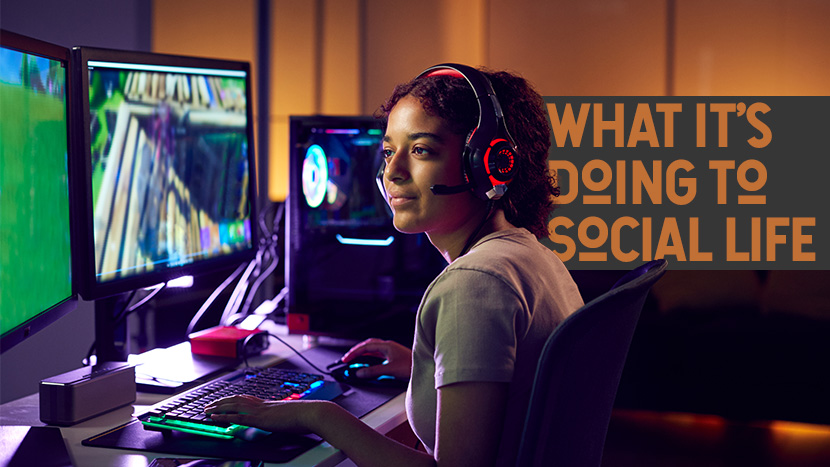The world of online gaming has undergone a remarkable transformation, driven by rapid technological advancements. With the rise of immersive virtual reality, multiplayer experiences, and mobile gaming, the landscape of online gaming has expanded and become more accessible than ever before. While gaming offers entertainment and social interaction, its technological impacts on mental health have become a subject of growing concern. The jilibet boasts an active and vibrant online community, where players can interact, form teams, and compete against each other in various multiplayer games. In this article, we delve into the various ways in which online gaming and technology can affect mental health, exploring both the positive and negative aspects of this complex relationship.
Contents
Positive Impact: Stress Relief and Relaxation
Online gaming can serve as a means of stress relief and relaxation for many individuals. Engaging in virtual worlds and immersive gameplay can provide a temporary escape from real-life stressors, allowing players to unwind and recharge. The sense of achievement and accomplishment when completing challenges in games can also boost mood and alleviate anxiety.
Negative Impact: Gaming Addiction and Compulsive Behavior
One of the most significant technological impacts on mental health is gaming addiction. Excessive gaming and compulsive behavior can lead to neglect of real-life responsibilities, social withdrawal, and disrupted sleep patterns. Gaming addiction can adversely affect mental well-being, leading to feelings of isolation, low self-esteem, and depression.

Positive Impact: Social Interaction and Community Building
Online gaming fosters social interaction and community building among players. Multiplayer games enable individuals to connect with like-minded people from around the world, forming friendships and support networks. For those who may feel socially isolated in their offline lives, online gaming communities can provide a sense of belonging and connection.
Negative Impact: Cyberbullying and Toxic Behavior
The online gaming environment is not immune to cyberbullying and toxic behavior. The anonymity offered by online platforms can embolden individuals to engage in hurtful or harmful conduct towards others. Experiencing or witnessing cyberbullying and toxicity can have detrimental effects on mental health, leading to feelings of distress and emotional vulnerability.
Positive Impact: Cognitive Benefits and Problem-Solving Skills
Certain online games require strategic thinking, problem-solving, and quick decision-making, which can have positive cognitive impacts. Engaging in such games can sharpen cognitive abilities and enhance problem-solving skills. This mental stimulation can be particularly beneficial for individuals seeking to maintain mental agility and acuity.
Negative Impact: Sleep Disturbances and Disruptions
Excessive gaming, especially before bedtime, can lead to sleep disturbances and disruptions. The blue light emitted by screens can interfere with the body’s natural sleep-wake cycle, leading to difficulties falling asleep and reduced sleep quality. Sleep deprivation can have adverse effects on mental health, contributing to mood swings and cognitive impairments.
Positive Impact: Online Mental Health Support and Resources
Online gaming platforms can also be vehicles for mental health support and resources. Some games and gaming communities promote mental health awareness and offer resources for players seeking help or guidance. This integration of mental health support within gaming environments can facilitate early intervention and destigmatize seeking help for mental health concerns.
Negative Impact: Escapism and Avoidance Coping
While gaming can provide temporary relief from stress, it can also become a form of escapism and avoidance coping. Individuals may use gaming as a means to avoid facing real-life challenges or emotions, which can hinder personal growth and resilience in the long run.
Positive Impact: Therapeutic Applications and Virtual Reality Therapy
The immersive nature of virtual reality has opened up possibilities for therapeutic applications. Virtual reality therapy has shown promise in treating various mental health conditions, including anxiety disorders, phobias, and PTSD. Online gaming and virtual reality can serve as tools for mental health professionals to facilitate exposure therapy and other evidence-based interventions.
Conclusion
Online gaming and technological advancements have both positive and negative impacts on mental health. While gaming can offer stress relief, cognitive benefits, and social interaction, it can also lead to addiction, sleep disturbances, and exposure to toxic behavior. As the gaming industry continues to evolve, it is crucial to strike a balance between the benefits and potential risks of online gaming. By promoting responsible gaming practices, fostering positive online communities, and integrating mental health support within gaming environments, we can harness the power of technology to enhance mental well-being and create a healthier gaming experience for all.









